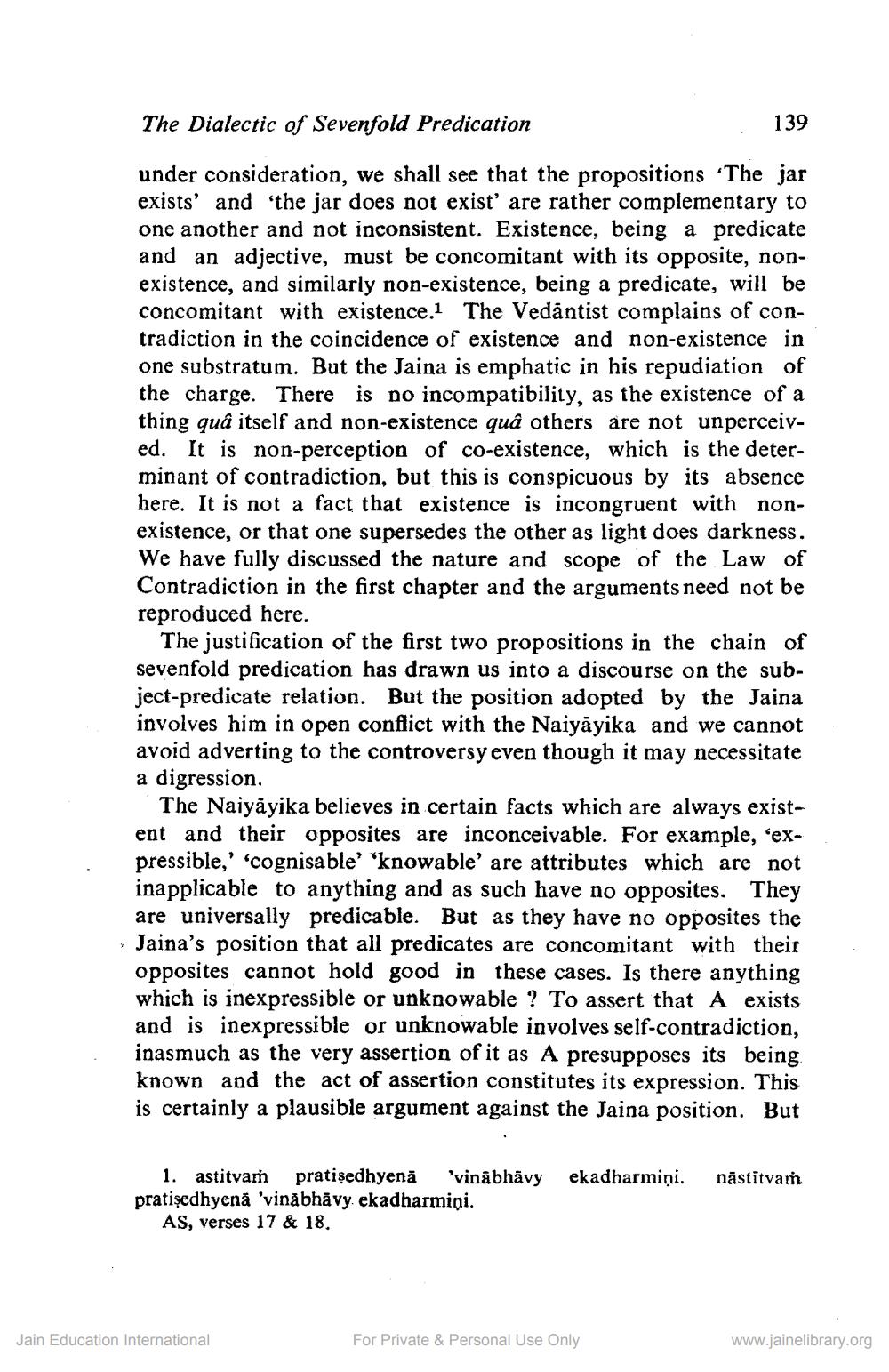________________
The Dialectic of Sevenfold Predication
139
under consideration, we shall see that the propositions 'The jar exists' and 'the jar does not exist' are rather complementary to one another and not inconsistent. Existence, being a predicate and an adjective, must be concomitant with its opposite, nonexistence, and similarly non-existence, being a predicate, will be concomitant with existence. The Vedāntist complains of contradiction in the coincidence of existence and non-existence in one substratum. But the Jaina is emphatic in his repudiation of the charge. There is no incompatibility, as the existence of a thing quâ itself and non-existence quâ others are not unperceived. It is non-perception of co-existence, which is the determinant of contradiction, but this is conspicuous by its absence here. It is not a fact that existence is incongruent with nonexistence, or that one supersedes the other as light does darkness. We have fully discussed the nature and scope of the Law of Contradiction in the first chapter and the arguments need not be reproduced here.
The justification of the first two propositions in the chain of sevenfold predication has drawn us into a discourse on the subject-predicate relation. But the position adopted by the Jaina involves him in open conflict with the Naiyāyika and we cannot avoid adverting to the controversy even though it may necessitate a digression,
The Naiyāyika believes in certain facts which are always existent and their opposites are inconceivable. For example, 'expressible,' 'cognisable'knowable' are attributes which are not inapplicable to anything and as such have no opposites. They are universally predicable. But as they have no opposites the Jaina's position that all predicates are concomitant with their opposites cannot hold good in these cases. Is there anything which is inexpressible or unknowable ? To assert that A exists and is inexpressible or unknowable involves self-contradiction, inasmuch as the very assertion of it as A presupposes its being known and the act of assertion constitutes its expression. This is certainly a plausible argument against the Jaina position. But
ekadharmiņi.
nästītvam
1. astitvaṁ pratiședhyenā 'vinābhāvy pratişedhyenā 'vinābhāvy ekadharmiņi.
AS, verses 17 & 18.
Jain Education International
For Private & Personal Use Only
www.jainelibrary.org




